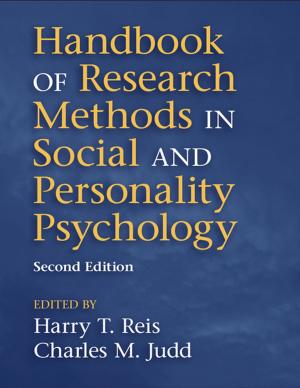Representations and Characters of Groups
Nonfiction, Science & Nature, Mathematics, Group Theory, Algebra| Author: | Gordon James, Martin Liebeck | ISBN: | 9781139636926 |
| Publisher: | Cambridge University Press | Publication: | October 18, 2001 |
| Imprint: | Cambridge University Press | Language: | English |
| Author: | Gordon James, Martin Liebeck |
| ISBN: | 9781139636926 |
| Publisher: | Cambridge University Press |
| Publication: | October 18, 2001 |
| Imprint: | Cambridge University Press |
| Language: | English |
This book provides a modern introduction to the representation theory of finite groups. Now in its second edition, the authors have revised the text and added much new material. The theory is developed in terms of modules, since this is appropriate for more advanced work, but considerable emphasis is placed upon constructing characters. Included here are the character tables of all groups of order less than 32, and all simple groups of order less than 1000. Applications covered include Burnside's paqb theorem, the use of character theory in studying subgroup structure and permutation groups, and how to use representation theory to investigate molecular vibration. Each chapter features a variety of exercises, with full solutions provided at the end of the book. This will be ideal as a course text in representation theory, and in view of the applications, will be of interest to chemists and physicists as well as mathematicians.
This book provides a modern introduction to the representation theory of finite groups. Now in its second edition, the authors have revised the text and added much new material. The theory is developed in terms of modules, since this is appropriate for more advanced work, but considerable emphasis is placed upon constructing characters. Included here are the character tables of all groups of order less than 32, and all simple groups of order less than 1000. Applications covered include Burnside's paqb theorem, the use of character theory in studying subgroup structure and permutation groups, and how to use representation theory to investigate molecular vibration. Each chapter features a variety of exercises, with full solutions provided at the end of the book. This will be ideal as a course text in representation theory, and in view of the applications, will be of interest to chemists and physicists as well as mathematicians.















